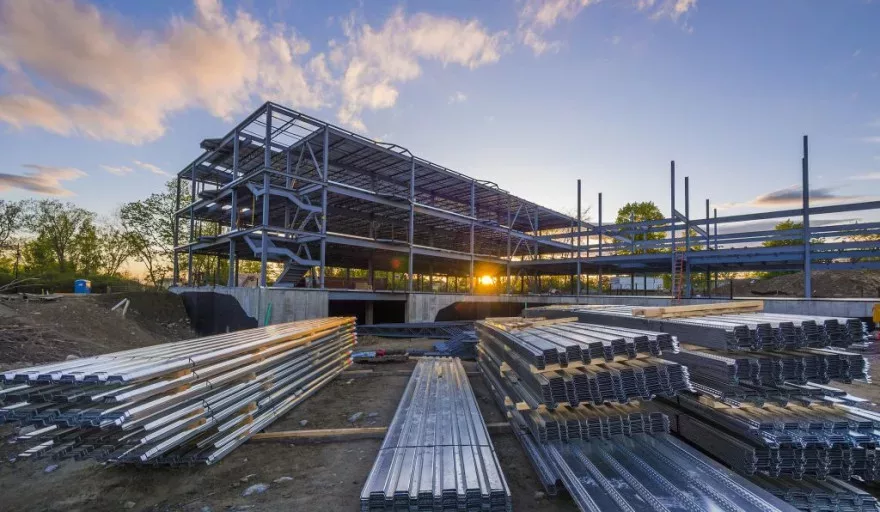The construction boom and a shortage of workers to handle demand could be among the reasons for a spate of safety lapses and accidents in the construction sector, industry players have said.
Apart from fatigue from working overtime, they pointed to the higher monthly foreign worker levies which have not only reduced the manpower at companies’ disposal, but also contributed to a rush to finish jobs in order to keep a lid on project costs – potentially compromising workers’ safety. Other reasons include new workers’ unfamiliarity with the job.
The Manpower Ministry said on July 3 there were 17 construction-related deaths in the first half of the year. The figure includes eight fatalities in January alone and is an increase from the 11 fatalities during the same period last year. The number of incidents with major injuries in the first five months also jumped 15 per cent from the same period last year to 71.
Asked about possible reasons behind safety lapses, Singapore Contractors Association (SCAL) president Ho Nyok Yong pointed to the boom in construction demand, which he believes would match the historical high of S$35.8 billion last year.
Speaking at SCAL’s Construction Safety, Health and Security Campaign event on Thursday, which was held to recognise industry efforts to make worksites safe, Dr Ho said many developers request for their projects to be completed earlier, putting pressure on contractors. Any job that is rushed into will affect the safety of workers, he said, adding that new workers are always arriving in Singapore and some may not be used to working at heights.
The figures prompted Senior Parliamentary Secretary for Manpower and Education, Mr Hawazi Daipi, to call for “urgent and serious action” to improve the situation. “If the trend continues, I am afraid we may end the year with a higher fatality and major injury rate than in 2013,” he said in a speech at the event.
Last year, there were 33 fatalities in the construction sector – the top contributor to workplace injuries. In May, construction firms told TODAY about challenges to meet project deadlines with limited manpower, which had led to project delays despite overtime work into the night in some instances.
Having workers work into the night could cause fatigue, said SC2 general manager Loh Yeow Leng, who has been auditing the safety measures of construction firms for the past 15 years. “When you are less alert, sometimes even (when) walking on flat ground, you can easily trip and fall. (Regardless of) how well the housekeeping is, there are always chances of trips and falls, which can easily cause quite a serious accident,” he said.
Most of the construction projects, such as condominiums and train stations, are within built-up areas and work could be stopped on weekends to reduce noise levels. This further reduces the time available to complete a project, Mr Loh said.
Another contractor, who wants to be known only as Mr Pereira, said higher worker levies make project delays costlier because workers – whose levies are renewed monthly – have to stay longer on-site. This puts stress on contractors and workers to speed up the construction.
Some workers, under pressure to complete a project quickly, could meddle with things they are not trained to handle, such as cables providing power to a worksite, he said.
Unison Construction managing director Tan Soon Kian said the “majority of projects” in the industry are always done in a rush, but also pointed out that working hours in the construction industry are shorter than a decade ago. He has also observed from the latest tenders that developers are willing to accept longer durations for construction.
He noted that while the MOM already has a framework on worker safety, contractors sometimes underestimate the amount of time needed to conduct risk assessment.
“They may think this piece of work can be finished in half a day, but preparation for all these risk assessments may take a longer time and all these may cause problems,” he said, adding that such an attitude must change.
Member of Parliament for Bishan-Toa Payoh GRC, Mr Zainudin Nordin, who is Chairman of the Government Parliamentary Committee for Manpower, said government agencies, contractors, developers and workers must work together to improve the situation, making sure workers are aware of their roles and do not get into dangerous situations.
“People have been talking about needing more workers, so I can understand. But whether it is directly related to performance or the workers or the lapses, we don’t have a direct correlation … I think it is better for us to not speculate,” he added.
The MOM has stepped up enforcement efforts since January, with more than 1,600 inspections, covering close to 850 companies in the construction sector, conducted to date.
In April, the ministry launched Operation Peacock, which found 280 safety violations in 15 days. Four full Stop-Work Orders and 178 fines totalling more than S$110,000 were imposed.
SOURCE: http://www.channelnewsasia.com/news/singapore/construction-boom/1234232.html



















